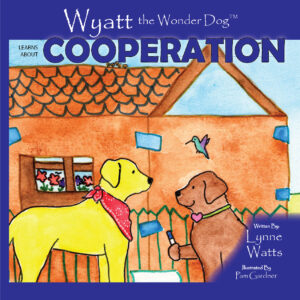How effective is your school’s ISS?
School ISS Plans
Last week I was at a school doing some staff training on developing positive behavior systems based on understanding personality style. I had a conversation with the principal about the role of ISS (in school suspension) and how effective it is as a deterrent to misbehavior. Most school personnel would agree that it is not very effective. Sure it gets a child out of the classroom for a period of time and hopefully impresses the child with the fact that the behavior has consequences that are undesirable… but does it really teach a child how to behave differently? So if it’s ineffective and difficult to staff (no one really wants this duty)… why don’t we do something else?
What if it were possible to use ISS time to teach better behavior skills?
Here are some ideas:
- Create a worksheet that even the youngest child can complete about the behavior that landed them in ISS. Use a comic strip layout with a box for each of the following questions:
- What happened first?
- What did I do?
- What have I learned?
- What do I plan to do in the future?
- Young children can draw a picture in answer to the questions. Older children can write about the experience.
- The teacher in attendance reviews the sheet with the child. This is a time for learning from mistakes, not a time for scolding for bad behavior. Challenge perceptions and pat answers. Encourage creative thinking and personal responsibility for feelings and actions.
- Make the child a copy of the sheet for them to review later perhaps with their parents. Keep a copy in the ISS room. If the child is back in ISS for a similar behavior, have them complete a new worksheet, then compare it to the old one. Discuss what happened and why the old plan didn’t work. How will the new plan make a difference? What do they need to do differently? How do they need to think differently?
- Use a growth mindset and frame the entire experience as an opportunity to learn from mistakes rather than as a punishment to teach a child a lesson.
- Before the child leaves, have them role play or act out how they will handle a similar situation in the future based on their answers on the worksheet.
- Anticipate with the child what they will do when they encounter a similar situation again. Frame it as a test of the plan that they have come up with. Have them set an intention or a goal as to how they will handle it better. Discuss how they will feel after they successfully handle the next challenge.
- Rather than have children do busy work during any remaining ISS time, have them read books on positive behavior. For example, an excellent series on bullying is the Weird Series which has great suggestions for bullies, bystanders and victims of bullying. Trudy Ludwig and Julia Cook write a number of books on improving behavior. And of course, I also recommend the Wyatt the Wonder Dog books:)
- Finally while simply changing the name won’t change the experience, it can give staff and students a better idea of what the time is designed to do. Some ideas are: Reflect and Reset Room, Re-Teach Lounge, Opportunity Center, Refocus Room.
Good behavior is often something we just expect that a child should understand. After all, we told them the rules, right? Why can’t they just follow them?
What if we thought of behavior the same way that we think about math or reading? We’d never give a child a book, explain briefly how words and sentences work together and expect them to pick it up and start reading. We’d never tell a child how to add and subtract and expect that they could answer math problems right away. Yet we expect that all children should understand and follow behavior rules. Some children do manage to pick up how to behave without a lot of guidance just as some children seem to be born reading. But most of us could benefit from some intentional teaching of behavior skills. By applying the growth mindset concept to behavior challenges, we can frame misbehavior as a chance to learn from mistakes and an opportunity develop better behavior skills.
Wyatt the Wonder Dog Learns about Cooperation
Wyatt wants to play Frisbee. Max want to build a fort and Callie wants to have tea party. How do the three friends reconcile their differences? Can it be done? When Wyatt doesn’t get his way, Max’s mother suggests he be the Superhero for the day. Join Wyatt as he learns how the magic of cooperation and compromise can bring the five friends closer together.

